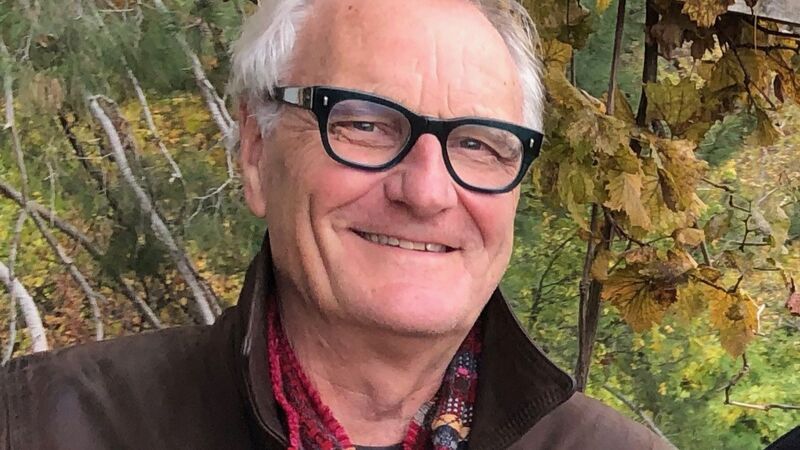You are viewing your 1 free article this month. Login to read more articles.
Taiye Selasi | "I am a little tired of talking about the African book or African literature"
Of all the début authors in 2013, Taiye Selasi will assuredly be the only one who can claim to have been badgered and cajoled into her writing career by a Nobel laureate.
"I had been trying to make my way as a writer for about 10 years," Selasi says in an excited rush. "I had been waiting for a novel to arrive, I was suffering from writer's block, when at a party after finishing my graduate degree at Oxford I sat next to Toni Morrison."
As you do. The London-born, Boston, Massachusetts-raised Selasi struck up a friendship with Morrison, her "lifelong literary hero". After Oxford, Selasi moved to New Jersey, a short drive from Morrison's house in Princeton, and the two would often meet to talk of books and Selasi's writing, "or lack thereof" she says with a rueful laugh. One summer day, Selasi brought her mother and twin sister to meet the Beloved author.
Morrison decided it was time for some tough love. "She said: 'Every time I see you, Taiye, I expect you to bring me a manuscript. I'm giving you a deadline: you have until the end of December to deliver one to me. We're going to shake on it in the presence of your family and mine.' What could I do?"
Strangers in a strange land
Selasi sent Morrison "The Sex Lives of African Girls", a compelling yet disconcerting short story of the sexual awakening and abuse of a young Nigerian girl living in Accra, Ghana. It turned out to be a pretty decent first stab at fiction, eventually ending up being published in Granta's Best American Short Stories 2012.
Now comes Selasi's soaring début Ghana Must Go (Viking, April), which touches on some of the same themes as "Sex Lives . . .", but is on a much broader scale. It opens with a long, affecting and strangely beautiful death scene of surgeon Kwaku Sai who, while having a fatal heart attack one sunny morning in his garden in Accra, thinks back on the family he abandoned in the US.
The action takes place across the globe, from Ghana to Boston, from New York to London, when the family Kwaku left behind—Nigerian-born wife Fola, eldest son Olu, twins Taiwo and Kehinde, and youngest daughter Sadie—attempts to come to terms with his death, the pain of his leaving, and a dark and horrific family secret.
Many débuts are semi-autobiographical, of course, so what has Selasi taken from her own life? She ticks off several things quickly in succession: a surgeon father who left his family; a mother who is part-Nigerian/part-Scottish; a twin sister who went to Yale and Harvard (just as Taiwo does); a mother who moved from the US to Ghana. She laughs: "Other than that, no similarities."
A dominant theme throughout Ghana Must Go is the rootlessness of the immigrant experience. When the Sais go to Ghana, "the Motherland", they find it disconcerting and confusing. It is something that Selasi herself experiences. "I feel a weird strangeness everywhere. I spent my formative years in the US never feeling American. My mom and her entire family speak with thick British accents. My sister and I found African-American culture very foreign because we have no indigenous exposure to it. Our West African family thought we were strange because we didn't speak Yoruba or Ewe. I'm not really British, American or African. This might be why I now live in Rome."
The Africa Question
It was not a straight path from sending Morrison the manuscript to writing Ghana Must Go. Two years elapsed until she finally had enough of the novel to send it off to an agent—her first choice was Andrew Wylie. Selasi's assessment of Wylie ("I love him, he's so sweet and funny") might not chime with everyone in the trade who has had to deal with "the Jackal".
Yet Wylie certainly delivered; she submitted a manuscript on a Thursday, and he asked her to be a client the following day. A week later, Ann Godoff at Penguin Press US pre-empted for a two-book deal. Selasi shakes her head. "I was completely floored. First of all, it was June. Publishers don't really work in the summer, do they? And it was just so exciting to work with [Godoff], who edited White Teeth and The God of Small Things, two of my favourite début novels, not to mention both written by brilliant brown women."
At Yale and Oxford, Selasi studied politics and international relations. In 2005, she published an essay in US alternative magazine LiP in which she coined the term "afropolitian", a term now widely used to describe a new generation of Westernised Africans and Africans who have emigrated to the West. Unsurprisingly, then, she is already being bombarded by questions about the state of Africa and the African novel while she promotes Ghana Must Go.
"It would be disingenuous to say that I don't care about the underlying politics," she says. "And I did put an African country in the title. So I understand where the questions come from. But "I am a little tired of talking about the African book or African literature. What does this book have to do with Egypt or South Africa or Kenya? No one talks about the European novel. I think we need to move beyond all that and talk about the humanity behind the stories."
Book Data
Publication 4/4/13
Formats HB/EB
ISBN 9780670919864/TBC
Rights Sold into 13 territories
Editor Ann Godoff, Penguin (US), Venetia Butterfield, Viking (UK)
Agent Andrew Wylie, The Wylie Agency










